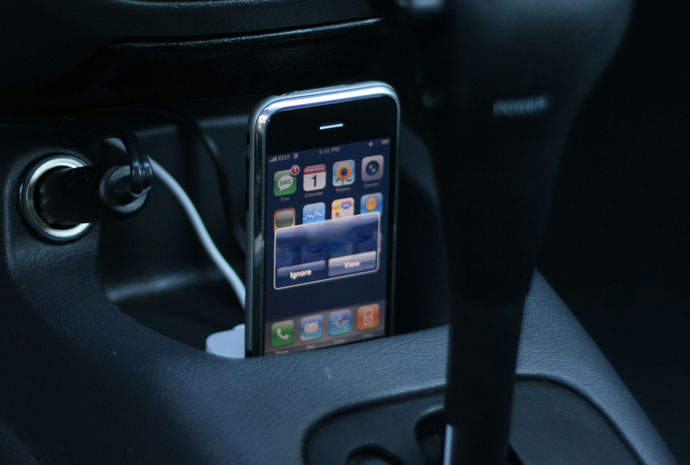New Device May Catch Texting Drivers

Image via Flickr/ Tony Swartz
Virginia-based ComSonics is developing a new radar gun to help police nab misbehaving drivers. The catch? This isn’t a speed radar gun — it’s a device that can detect texting.
The new radar gun will work by detecting the radio frequencies that are emitted when someone uses a cellphone, according to Hampton Roads. Even when a driver is inside a moving vehicle, these frequencies can still be identified. Malcolm McIntyre of ComSonics tells Hampton Roads that text messages, phone calls, and data transfer all emit different frequencies, which will come in handy in states that allow drivers to talk on the phone but not to text.
The Governors Highway Safety Association says that as of September, 44 U.S. states ban drivers from texting; six states have no overarching ban on texting, but four of them prohibit novice drivers from texting and three prohibit school bus drivers from texting. In addition, 14 states ban all drivers from using handheld cellphones, and 38 states plus D.C. restrict novice drivers from all cell phone use.
More than nine people are killed every day in the U.S. due to distracted driving, according to the CDC; over 1,000 people are injured for the same reason. Texting while driving is no joke: 31 percent of U.S. drivers in the U.S. (aged 18-64) reported that they had “read or sent text messages or email messages while driving at least once within the 30 days before they were surveyed” by the CDC in 2011.
ComSonics’ new device is close to production, but must still receive legislative approval, McIntyre tells Hampton Roads.
There are still a few logistical issues with the technology, however, as Auto Evolution points out. For example, a police officer has no way of knowing whose phone is being used in a car with two or more people in it, which may lead to lots of pointless pull-overs for cars whose passengers are texting.
Furthermore, cell phones are constantly sending and receiving data; there is also the possibility that a phone could be receiving a text while in range of the new gun rather than sending one, leading to possible privacy concerns regarding officers attempting to discern whether texting is actually occurring or not.
However, McIntyre tells Hampton Roads that the new equipment “could not decrypt the information that is transmitted by drivers,” so even if this device does end up being deployed on the roads, police officers will not be able to read people’s private texts — good news for a public that has already had its emotions studied by Facebook, and been massively spied on by the NSA.









































